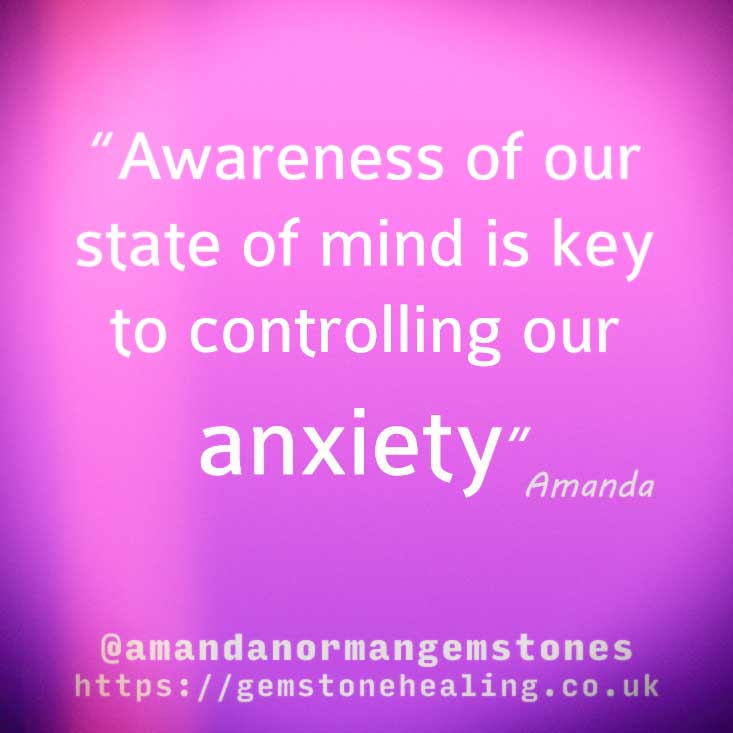Decatastrophising is a technique that I was taught as part of my Cognitive Behavioural Therapy to help treat my anxiety.
In cognitive therapy, decatastrophizing or decatastrophization is a cognitive restructuring technique to treat cognitive distortions, such as magnification and catastrophizing, commonly seen in psychological disorders like anxiety[1] and psychosis.[2]
Wikipedia

When I was suffering badly from my general anxiety disorder, I was constantly catastrophising most situations and events in my daily life. In other words, I was constantly thinking that something bad will happen or that my situation was far worse than it was.
At the height of my condition, I locked myself away for months and would not go out, not even to attend work. This was the final straw. For months if not years, I had been upsetting friends and family by letting them down at the last minute. I always used some lame excuse. I would lie and make up excuses because I couldn’t face it for fear of something bad happening. Subsequently, my feelings of anxiety grew with wild thoughts about being confronted for lying. Furthermore, I was constantly fearful of losing my friends and family. It was a merry-go-round of sleepless nights, crying, and putting myself into isolation. I was constantly closing myself off, declining parties and engagements, and feeling depressed.
Anxiety and Cognitive Behavioural Therapy (CBT)
One day, some voice rose up within me and said, ‘enough is enough‘! Of course, this was my inner power and I felt inspired to seek help.
I searched online for counselling/therapy in my local area of Liverpool. I found Talk Liverpool which is an NHS service that lead to a quick and easy self-referral process. Following a phone call with an adviser, I was subsequently diagnosed with general anxiety disorder. The adviser recommended a course in Cognitive Behavioural Therapy (CBT).
The day came for my first session of group CBT and it’s here that I became mindful of irrational fear. Furthermore, I began to realise how I was creating it and most importantly, I learned how to manage it.
If like me you’re suffering from anxiety, it’s really important that you get therapy or counselling. I also want to point out that you are not alone. As a consequence of my attendance and listening to fellow sufferers, I realised how normal I was. I know longer felt alone, which was a significant key point for me and my recovery.
In a nutshell, CBT will provide you with the ability to face your irrational fear by decatastrophising it.
So, without further ado, I’m going to be brave and write about my first one-to-one session with the CBT therapist.
Obviously, you need to remember that when you’re suffering, everything is blown out of proportion. I’m actually cringing about writing this as I do feel silly.
Conversation with my therapist
Therapist: What is it that you don’t like about work?
Me: I don’t know
Genuinely felt on the spot as I didn’t know
Therapist: There must be something?
Awkward silence as I start floundering as I search desperately for an answer. I wanted to say that I don’t like catching the train, but I felt awkward and weak. The silence continued so I blurted it out..
Me: I don’t like catching the train
Therapist: Why not?
Oh no, here we go again. It was true that I didn’t like catching the train, but I didn’t know why. I started asking myself why and I was scrambling for answers and feeling very silly
Me: Err I think something bad will happen
Therapist: What might happen?
Nooooooooooo this is never ending. Seriously my head was getting messed up now. What’s the bad thing that will happen I asked myself?
The de-catastro
Me: The train might not come
Therapist: Then what?
Me: I’ll have to catch the next train
Therapist: Then what?
Me: I’ll be late for work
Therapist: Then what?
Me: I’ll have to explain that the train was late
Therapist: And what do you think will happen then?
At this point, I realised that nothing bad would happen, well, not in my case as my employers are very understanding. Also, it’s not like this scenario is going to happen everyday. I decided to tell her about my other fear…
Me: Well I might get stuck with a psycho who will be very nice to me, but he’ll follow me home and do something bad
Therapist: What are the chances of that?

Now I had the therapist as I did actually get stuck with someone years ago who followed me home, but nothing bad happened
Me: It could happen. A guy asked me once for a light at the train station when I was popping into town years ago. He got on the train with me, talked all the way to town, got off the train and came shopping with me. I was being polite, but I was thinking of how to get home without him coming with me. I was too scared to say ‘goodbye‘. So instead, I told him that I needed to make a phone call, this being in the days before mobile phones. I phoned my sister and told her to get people round to my place so that I wouldn’t be on my own.
Therapist: What happened?
Me: He came back, had a brew and then we all walked to the train station and he left
Therapist: So nothing bad happened?
Me: No, but it could have
Therapist: So what would you do if it happened again?
Me: I wouldn’t allow it. I’d inform him that I’ve got to leave now and if he wouldn’t leave me alone, I’d call the police.
Decatastrophising Summary
CBT has taught me to distinguish between real problems and irrational fear by asking what if.
Real problems need to be broken down and managed.
To put a stop to those irrational fears from spiralling out of control, you have to confront the worst case scenario by asking, ‘then what‘ until you can’t go any further.
I can’t say that I enjoyed the sessions, but it has helped me to manage my anxiety. To help you with this, I’ve found a worksheet via Therapist Aid that is worth looking at, but please seek help from a professional. Decatastrophizing Worksheet from Therapist Aid
Anxiety Help
- Speak to your GP/Health Care Professional
- NHS Self Help Generalised Anxiety Disorder
- Anxiety and panic attacks – Mind Charity
